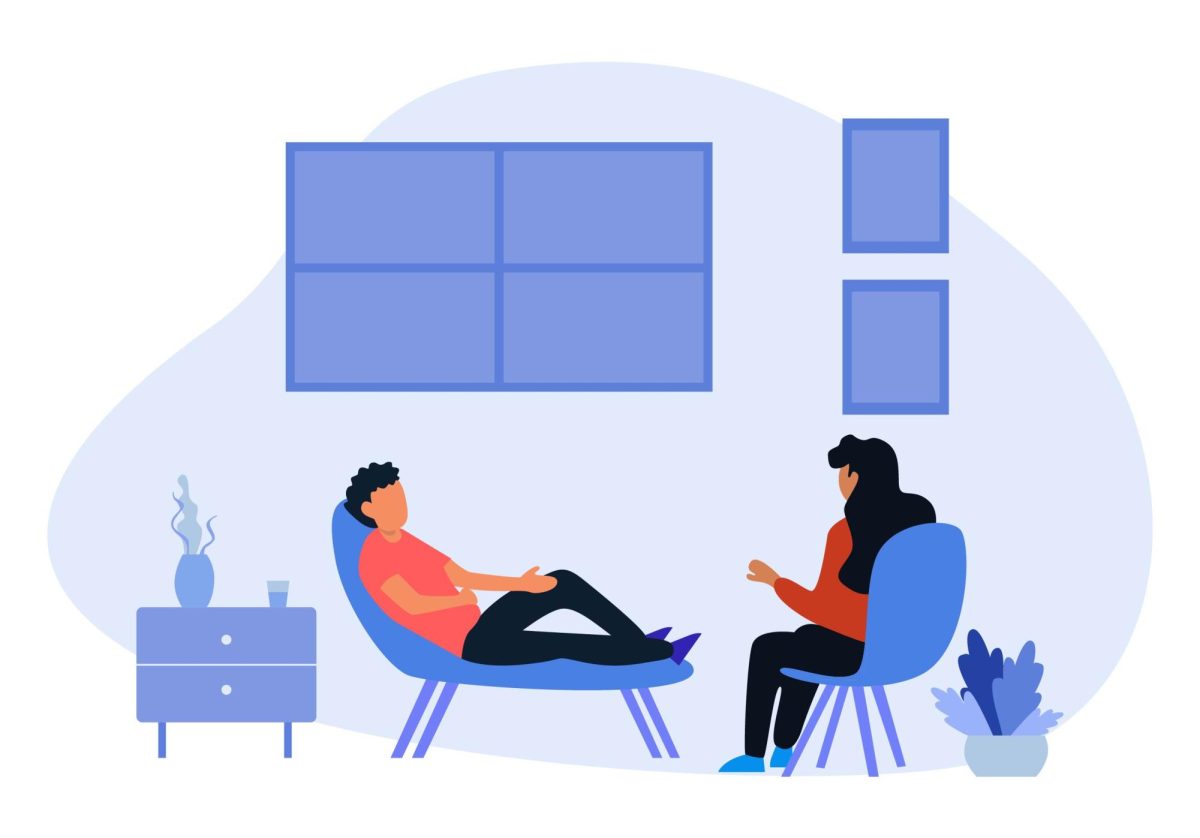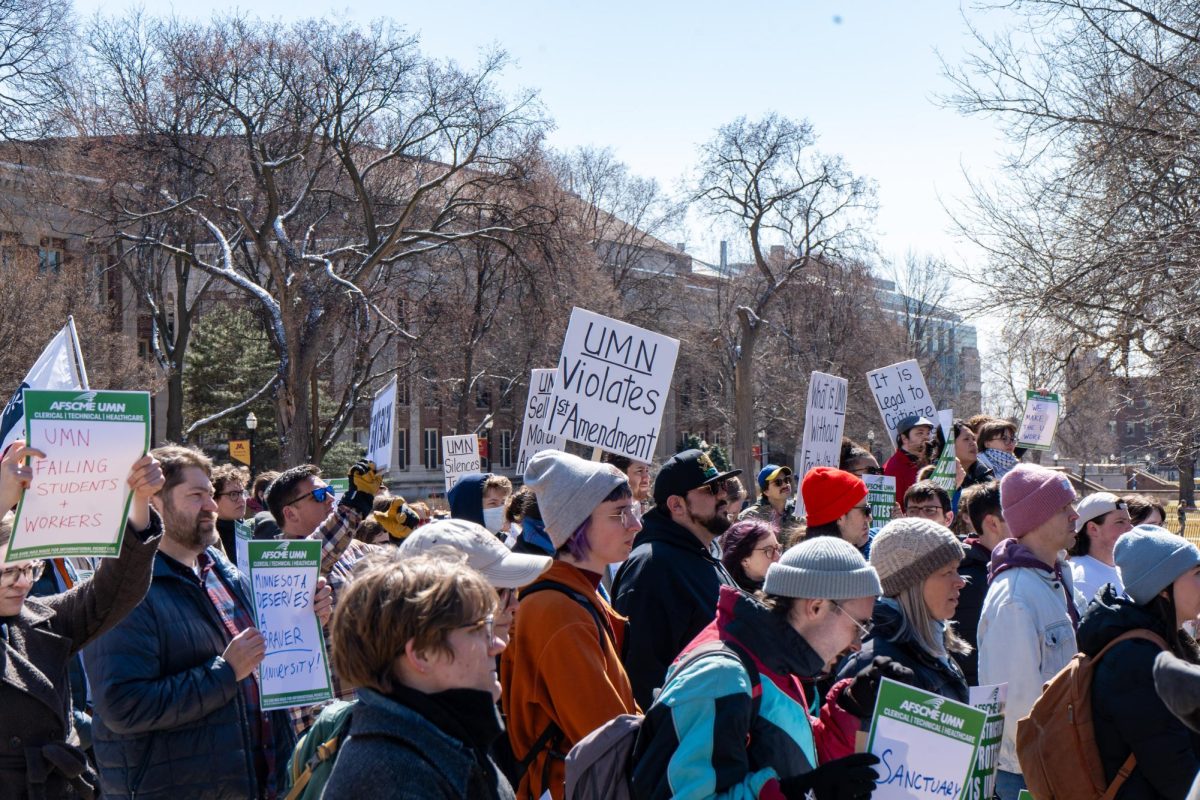College students seeking mental health support face delays in care due to licensing barriers that prevent out-of-state therapists from providing services in another state, limiting access to critical resources.
Mental health therapists are traditionally licensed on a state-by-state basis, which prevents them from providing services across state lines, potentially disrupting the continuity of care for students and others who move between states.
University of Minnesota students ages 20-24 reported the highest rates of depression diagnosis within their lifetime, and students ages 18-19 reported the highest rates of depression within the past 12 months, according to the University’s 2024 College Student Health Survey Report.
89% of therapists said they wanted to see reforms in cross-state licensure, and nearly 70% of surveyed therapists reported they experienced losing a client due to a client moving to another state, according to research conducted by Alma, a platform that aims to simplify access to mental health care.
Undergraduate Student Government Director of Federal Affairs Salma Abdi said USG held discussions with legislators on expanding interstate licensure for mental health professionals during Big Ten on the Hill, an intercollegiate conference where Big Ten student governments meet with congressional legislators.
Abdi said Minnesota legislators across parties expressed interest in reforming cross-state licensing, given the growing concern about mental health on a national scale.
Although students have free access to mental health professionals, Abdi said issues arise when University-sponsored mental health resources like Boynton Counseling or Student Counseling Services have long wait lists and limited appointments.
“In Minnesota, there is this growing concern and growing need for mental health care access,” Abdi said. “So, Minnesota is not able to meet the needs of every single college student. Minnesota is not able to have mental health care professionals meet and represent the experiences and needs of all the entire population in Minnesota that requires or needs access to mental health care.”
Abdi said USG will keep pushing to advocate for expanded mental health resources by continuing talks with students and administration.
Abdi hopes to have a law passed including feasible, broad requirements for mental health care. This includes the ability for mental health care professionals to practice in different states or practice in one state while treating a patient in another state.
“The reason why people should know about this is because it doesn’t require throwing a bunch of money out,” Abdi said. “It doesn’t require investing in infrastructure. It doesn’t require this investing in healthcare professionals, but rather creating a space where more people are able to have access to more healthcare professionals and more mental healthcare professionals.”
University law student Madeleine Rossi said cross-state licensing impacts students specifically because a lot of students leave their home state of residence for college. She added that this often leads to students breaking the continuity of care with a therapist unless that therapist is willing to get licensed in their new state.
Rossi is the writer of “Breaking Barriers: Cross-State Licensing Reform for Licensed Professional Counselors,” a student note and entry in the Minnesota Journal of Law, Science and Technology.
Rossi said she wrote the piece because of her personal experience with the effects of cross-state licensing as a person who receives therapy. Rossi lives in Minnesota during the school year and has lived in Washington the past few summers, which affects her access to her therapist.
“I know what the Minnesota regulation is and what the Washington regulation is and I know that, like when I move, I won’t be able to continue that relationship for very long,” Rossi said. “There’s basically, like a temporary practice exception, but that only lasts for so long.”
In Minnesota, the Board of Behavioral Health and Therapy offers a temporary license for out-of-state mental health professionals seeking to practice within the state. This temporary license allows individuals to provide therapy services while completing Minnesota-specific licensure requirements.
Rossi said cross-state licensing has also affected her friends who formed established relationships with therapists.
“Some of my friends have found ways to continue those relationships and some of my friends have stopped doing therapy because it just takes so long and so much time to set up a new relationship with a new provider,” Rossi said. “It definitely creates a barrier for young people when they’re moving around and wanting to keep their therapy going, but they can’t continue with the same provider.”
Rossi said cross-state licensing is inconvenient, often forcing mental health professionals out of the profession because they do not want to spend the time or money to apply for a license in a different state.
In another Alma study, researchers found 54% of therapists with a second license spent between $250 and $500 on getting licensed in another state, while 13% spent between $501 and $1,000.
Rossi said the best thing that can happen right now would be for states to amend their individual licensing schemes by modifying regulations, requirements or criteria for obtaining and maintaining professional licensure. Amendments can include establishing new licenses and reforming reciprocity requirements.
Reciprocity in professional licensing allows workers to use their existing credentials to practice in another state without meeting all new licensing requirements.
During COVID-19, some states temporarily eased reciprocity requirements, allowing out-of-state licensed counselors to provide services without undergoing the full local licensing process, according to Rossi’s piece. However, these measures were often short-lived and highlighted the need for more permanent solutions.
Minnesota Gov. Tim Walz issued an executive order on April 6, 2020, allowing licensed out-of-state mental health providers to offer telehealth services to Minnesota residents during the pandemic. To qualify, providers had to be in good standing in their home state and register with the appropriate Minnesota licensing board.
Rossi said students should be made aware of cross-state licensing because it affects a large number of working Americans.
Recent data from August 2024 shows the U.S. is in a mental health crisis and mental health struggles are experienced by people of all ages, according to the Centers for Disease Control.
“I think that we should all be concerned about lack of access to mental health care, especially for our youth,” Rossi said. “And this, although it’s only one piece of the puzzle, does impact access to mental health care and just the accessibility of it.”













